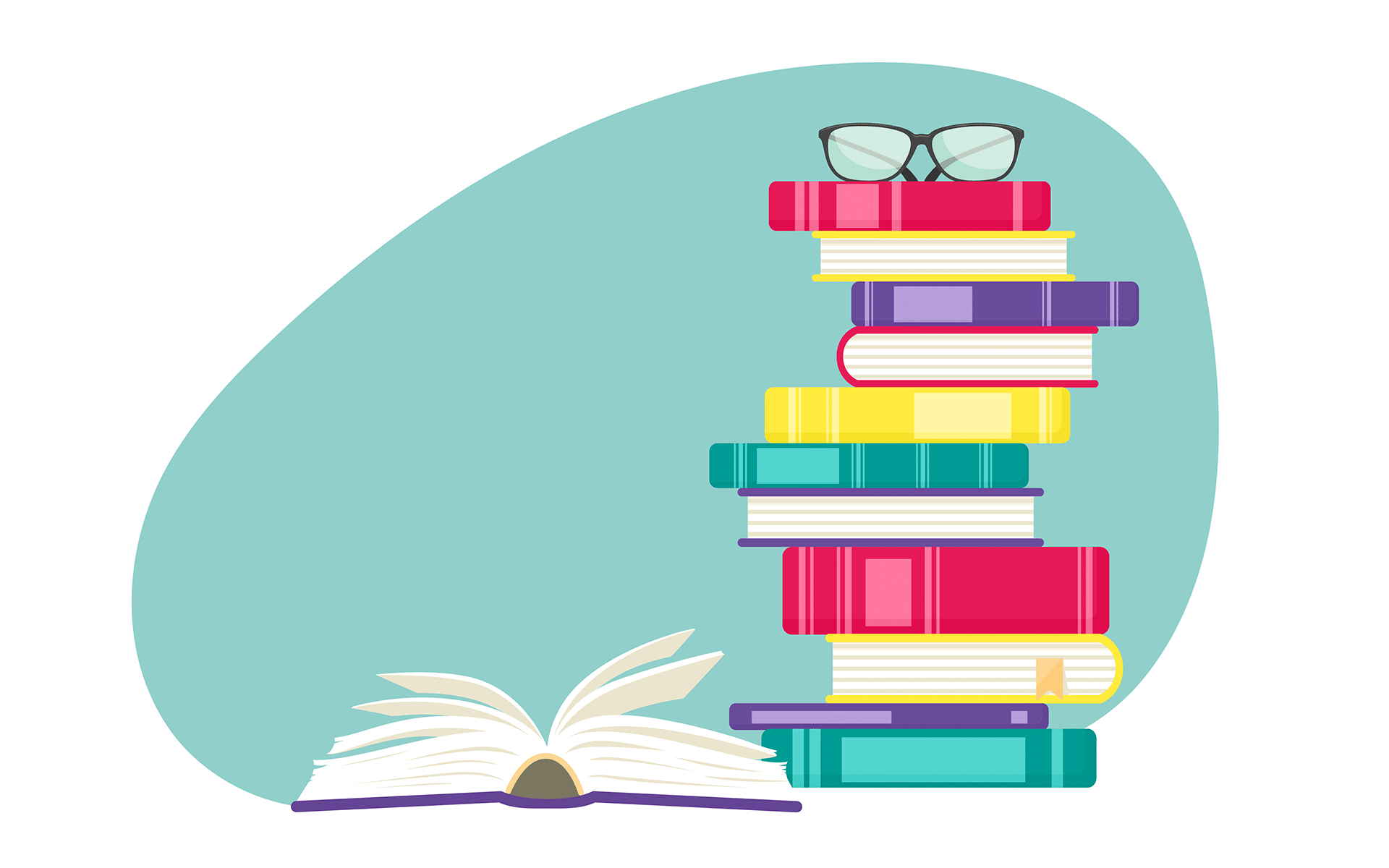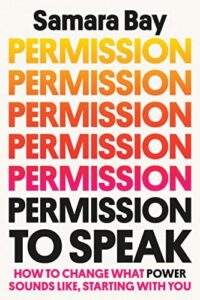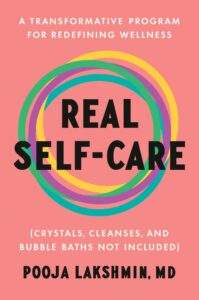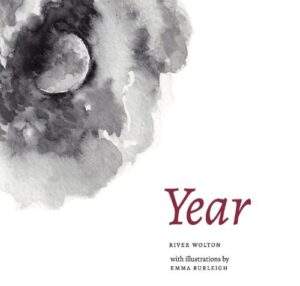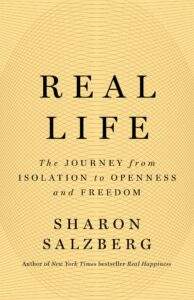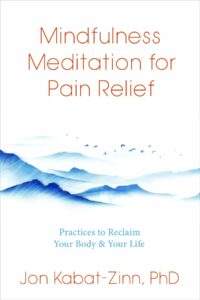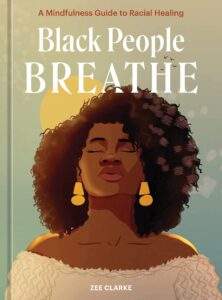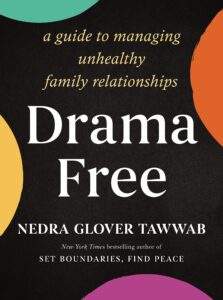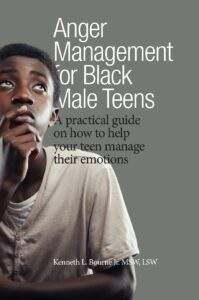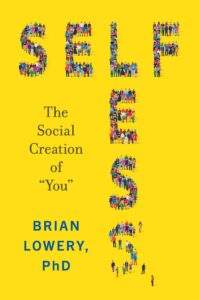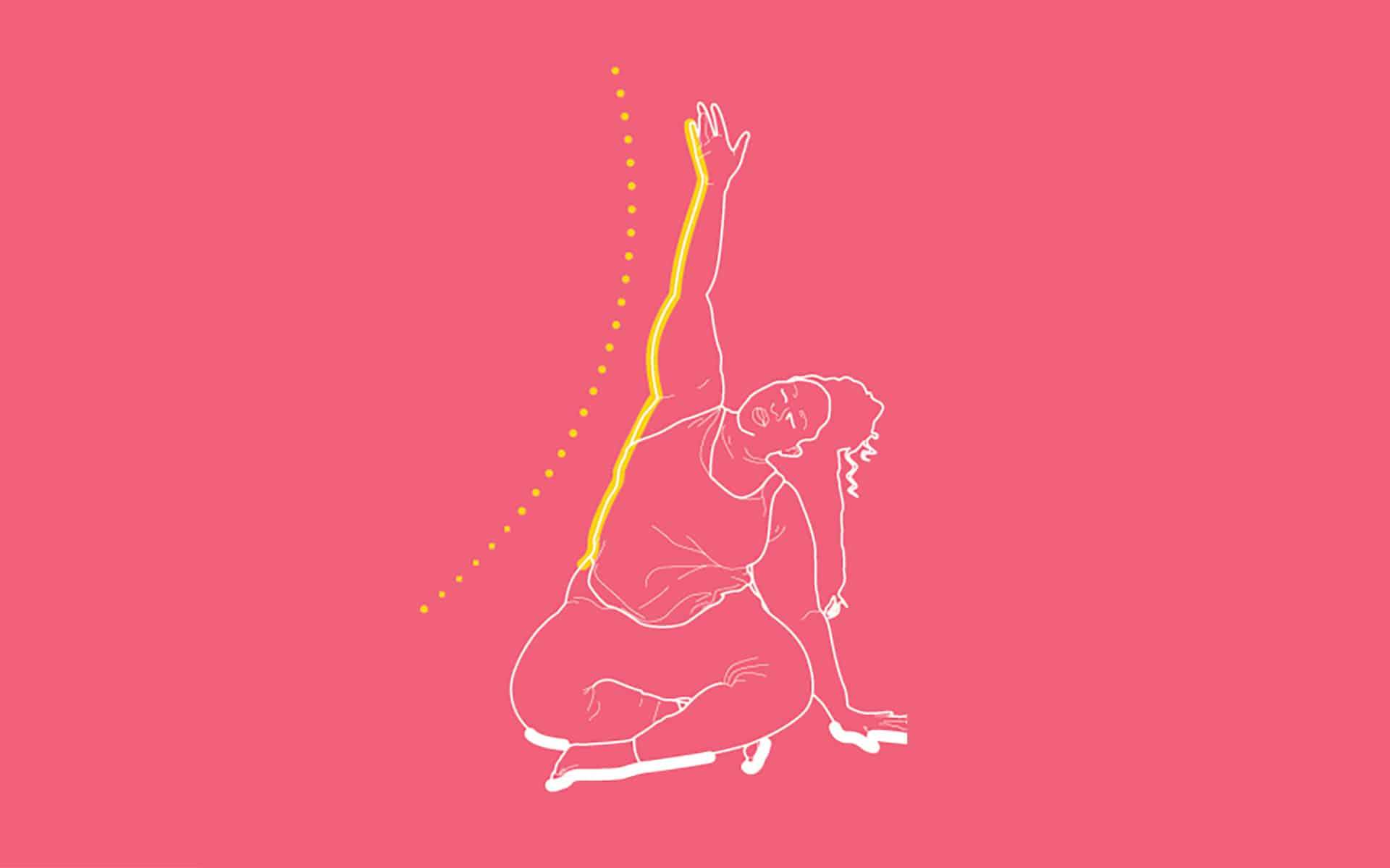The latest mindfulness books range from exploring the transformational power of self-care to benefits of practicing mindfulness for pain relief. Here are the Mindful editors’ favorite new titles.
9 Mindfulness Books to Add to Your Reading List
1) Permission to Speak
How to Change What Power Sounds Like, Starting with You
Samara Bay • Crown
“To speak with the full wingspan of your voice requires some technical know-how as well as a certain flex of the permission muscle,” writes Samara Bay in this book that delivers plenty of each, and more besides. Bay is a speech and dialect coach who’s worked with actors, politicians, business leaders, and others who are looking for ways to fully discover and inhabit their voice. Permission to Speak goes beyond the easy “use your voice” platitudes that power hashtag-girlboss memes, and instead explores what it might mean to show up fully, in the way that we want to, and to find the joy in saying what we came to say. The book never shies away from frank talk about the ways systems of oppression have squelched and silenced some voices, and at every turn, Bay offers practical and doable exercises and practices that address both the technical know-how parts and the permission muscle flex—from working with breath to “looping it through the heart” or, in other words, saying it like it matters.
Bay writes with humor and ease, sharing stories from her own experience and those of her clients: analyzing how and when Oprah Winfrey uses vocal fry to connect with her audience, and offering a trick for aligning your skull with your spine in order to relax your throat that is worth the book’s cover price alone.
At the heart of it all is Bay’s belief that helping people—women, especially—find and step into their true voice with confidence, heart, skill, and vulnerability can ultimately lead to a more just world, where a wider variety of voices and messages can be heard in boardrooms, living rooms, market halls, and government halls. – SD
2) Real Self-Care
A Transformational Program for Redefining Wellness
Pooja Lakshmin MD • Penguin Life
Pooja Lakshmin balances a compassionate tone and frank dissemination of the facts. “I was taught to prescribe medications or provide psychotherapy for issues that were clearly systemic,” she writes in the introduction. She compiles anecdotes from her personal life, her education as a psychiatrist, and her clients to dispel the myth that the cure to burnout and self-criticism is found at the bottom of a turmeric latté or in a wellness getaway. Real self care, she writes, is based on four principles: holding boundaries, cultivating kinder self-talk, being intentional about what and who we surround ourselves with, and using our power for good. She guides the reader to make changes that benefit themselves, their workplaces, and their communities. – AWC
3) Year
River Wolton • The Poetry Business
Wolton, former poet laureate of Derbyshire, UK, dedicated her year to loving-kindness on January 1, 2020. “I resolved to write a poem a day and not to shy away from the realities of irritation, ill will, rage and pettiness,” she writes. Year compiles these poems, with grayscale watercolor illustrations by Emma Burleigh. We’re likely to recognize not only the experiences broadly shared in 2020—pandemic isolation, Black Lives Matter, losing loved ones, getting sick, seeking solace in nature—but, intimately, how we felt about it all. Throughout, the theme of loving-kindness persists as Wolton lets her “negative” emotions be part of the path back to compassion and interconnectedness. – AT
4) Real Life
The Journey from Isolation to Openness and Freedom
Sharon Salzberg • Flatiron Books
To read any of Sharon Salzberg’s last few books is to sit down for tea with a wise friend who possesses such a coherent, grounded, yet uplifting perspective that we feel held and grateful just being in their presence. Here, Salzberg delves into how small steps, small choices, can help us grow from a self-limiting mindset to a more expansive one, opening to the challenges we’ll inevitably face along the way. She explores, as she sums it up, “the inner journey—and journeys—we make when we decide to fully live life, whatever the world has presented to us, knowing that life is short and also that life is sacred.” Seeded with a colorful mix of mindfulness tools, Buddhist teachings, lessons from her Jewish background, personal anecdotes and juicy quotations, plus a smattering of pop culture, Real Life feels deeply rooted in our lives now, an expression of genuine engagement with the real world.
– AT
5) Mindfulness Meditation for Pain Relief
Jon Kabat-Zinn • Sounds True
Jon Kabat-Zinn famously launched Mindfulness-Based Stress Reduction in a hospital basement more than 50 years ago—taking meditation directly to people in pain. That the program is followed the world over and continues to grow daily testifies to the validity of its premise: that fully inhabiting this moment, “the only one in which we are ever alive,” has tremendous healing power, because we don’t increase our suffering by pouring energy into resisting and avoiding. It’s not a magic bullet that makes pain disappear. Rather, it cultivates the habit of being with ourselves more fully, “turning toward what we most fear to feel.” In this little guide, Kabat-Zinn returns to his roots, in a way, speaking directly to the condition of ongoing pain, offering wise perspectives and an understanding of why mindfulness can help, simple pathways to practice it, and guided instruction that can help us discover that “with every in-breath we find a new beginning.” – BB
6) Black People Breathe
A Mindfulness Guide to Racial Healing
Zee Clarke • Ten Speed Press
“Angry. Frustrated. Undervalued. Shocked. Sad. Attacked. Ashamed. Anxious. This is only a fraction of what Black people feel when we experience racism,” writes Zee Clarke in the opening line. And in lieu of waiting for sweeping change in racist systems and attitudes, she believes there is something else Black people can do to begin healing: practice mindfulness. “Please note,” writes Clarke. “Although this book is written for Black people and tailored to the Black experience in America, those of other backgrounds who experience similar challenges can also benefit from the tools that I will share.” Drawing on her own experience, Clarke generously shares how she’s applied mindfulness and breathing practices to racist and harmful interactions that, she writes, “Black people face on a daily basis as a direct result of the harsh impact of systemic racism, microaggressions, and overt hate crimes on our lives.”
In experiences of microaggression or triggering encounters with police, she recounts leaning on the Belly Breath practice for self-preservation and focused awareness. When deciding whether or not to code switch, she recalls the four questions from Byron Katie’s “The Work.” (These are only a few of the real-life scenarios covered throughout the book. Clarke also writes about bearing witness to the assault on Black lives, safety as a privilege, and imposter syndrome.) Then, Clarke details how to apply these practices and more in a Mindfulness and Breathwork Toolkit featuring illustrations by Princella Seripenah.
“To my white friends,” writes Clarke in the closing of the introduction. “I invite you to educate yourself about the Black experience, with an intention informed by both empathy and action. I also invite you to think about what role you might play to accelerate change.” – KR
7) Drama Free
Nedra Glover Tawwab • TarcherPerigee
Nedra Glover Tawwab’s first book Set Boundaries, Find Peace: A Guide to Reclaiming Yourself laid the groundwork for a deeper look at the nuances and complexities of familial relationships. In Drama Free, Glover Tawwab gently guides us through our own journey of unlearning dysfunction, healing, and growing, with chapters dedicated to untangling complicated family dynamics and navigating relationships with more confidence. While Drama Free doesn’t strictly focus on boundaries, “they are frequently highlighted as a way to thrive in family relationships,” writes Glover Tawwab, and the anecdotes, writing prompts, and ready-to-use conversation scripts throughout the book often offer guidance on how to set and respect boundaries. Each chapter explores a specific dynamic that may not relate to all of our experiences, but enough is covered (from relationships with parents and siblings to children and in-laws) for any reader to feel supported and comforted by the knowledge that they’re not alone. – KR
8) Anger Management for Black Male Teens
A Practical Guide for Parents On How to Help Your Teen Manage Their Emotions
Kenneth Bourne
In Anger Management for Black Male Teens, Bourne writes for parents, caregivers, teachers, activists, and anyone else who cares for young Black boys and men: “You are here because you are looking for answers, hope, and resources to address the emotional well-being of Black male adolescents.” And, to help us learn, he doesn’t hold back. Recognizing anger in Black men and boys is an opportunity to ask: What needs are not being met?
This book succinctly connects the history, neuroscience, environments, and systems that most deeply affect young Black men and boys to give the reader a well-rounded understanding of the context. Then, he offers research and mindfulness-based practices to help cultivate growth, resilience, and a sense of self-worth. Throughout, Bourne’s voice is one of fierce compassion and love. He is prepared to reckon with hard truths and deliver the information and stories we don’t want to hear, but need to hear, so that we can care more and care better. – AWC
9) Selfless
The Social Creation of “You”
Brian Lowery • HarperCollins
When we talk about “the self,” particularly in mindfulness or personal growth circles, our community and relationships aren’t often a big part of the conversation. But this is exactly the angle from which Brian Lowery approaches the ages-old question of how we are to understand “our” selves. A Stanford social psychologist and the Walter Kenneth Kilpatrick Professor of Organizational Behavior, Lowery has spent decades researching unconscious bias and the impacts of how we perceive inequality, concerns that are present in his study of what makes up (and is always remaking) a self. “Selves don’t emanate from some ineffable light within people,” he writes. “Instead, selves are created in relationships.”
Our socially-perceived identities are multifaceted, and frequently in conflict within the same person—like, for himself, being a Black man (a marginalized identity) who is a Stanford professor (a privileged identity), Lowery suggests. This complexity extends to our inner world: “I think of myself as someone committed to justice, someone who cares about equal access to opportunity, who places others’ life outcomes above abstract ideas. What could be more ‘me’ than the beliefs I hold most dear?” he asks, relatably. Yet, “What if all this is bullshit?” he counters. “If beliefs and actions define you, it’s only because they have social meaning.” Blending psychology, philosophy, and sociology, Lowery relays the exploration of what a self is into questions about how selfhood relates to personal autonomy, the consequences of our actions, and the desire for a meaningful life. Lowery is remarkably skillful at making these potentially heady themes clear and accessible, and engaging with them makes for a rewarding journey. – AT
3 Mindfulness Podcasts to Listen to Right Now
1) Ten Percent Happier with Dan Harris
Episode: “Could This Practice Improve Your Sleep, Sharpen Your Mind, and Decrease Unhealthy Cravings?“
This candid conversation between host Dan Harris and Kelly Boys offers insight on the work Boys does in the mindfulness space, often merging mindfulness meditation and non-sleep deep rest (NSDR) rooted in the practice of yoga nidra. Boys, who designed resilience programs for the United Nations, Google, and San Quentin State Prison, also reveals how to reap the benefits of NSDR with only a few moments of practice. For one, she recommends bringing awareness to the entire backside of your body to welcome a sense of rest, evoking a feeling that “someone’s got my back or I’ve got my back or life has my back,” Boys says. – KR
2) Mindfulness for the Culture
Episode: “Leaning Into Community”
In this brief, energizing episode, Sonia Raye Russell and David Lee Walker Jr. (cofounders of Special Sauce and developers of the BlackFULLness app) discuss how stressful times reveal the strength of our community, and of our practice. From Walker being in a car accident to the duo prepping for a key business meeting, they share how their past two days were heavy on challenges—yet, “What could have been a disruptive day has been nothing less than beauty in action,” Walker marvels. That’s the power of the practice: When we “show up grounded, present, and aware,” the two remind us, we can experience grace, ease, and gratitude, even when things don’t go as planned. – AT
3) Calm It Down
Episode: “Asking for Help–The Why, the When, and Who”
As in every episode of Calm It Down, soft piano music written and played by Chad Lawson welcomes the listener into a peaceful, compassionate space. This episode begins with an anecdote about John Lennon and the song “Help!” After writing the song, Lawson shares, Lennon realized that he had been calling out for help, but hadn’t known where to turn.
The inevitable highs and lows of life bind all of us together. So, why is asking for help so hard? Lawson explores this question and offers approachable steps for finding help when you need it. “Real strength is in recognizing when you can’t do it all alone. Accepting that asking for help isn’t a sign of weakness, but rather a window for connection,” he says. – AWC
read more
3 Mindfulness Practices for Mind-Body Connection
Checking in with our bodies can be a powerful first step to notice what’s arising right now and offering ourselves what we need to feel our best.
Read More
7 Mindful Movement Practices for Daily Life
Top mindful movement experts invite us to come home to the body, get curious about what we find there, and let it nourish us from the inside out.
Read More
A New Mindful Sex Workbook, Meditation in Space, and More Mindful News
From emerging mindfulness gatherings to a look at how one astronaut brought meditation to space, here’s the latest news from the mindfulness community.
Read More


